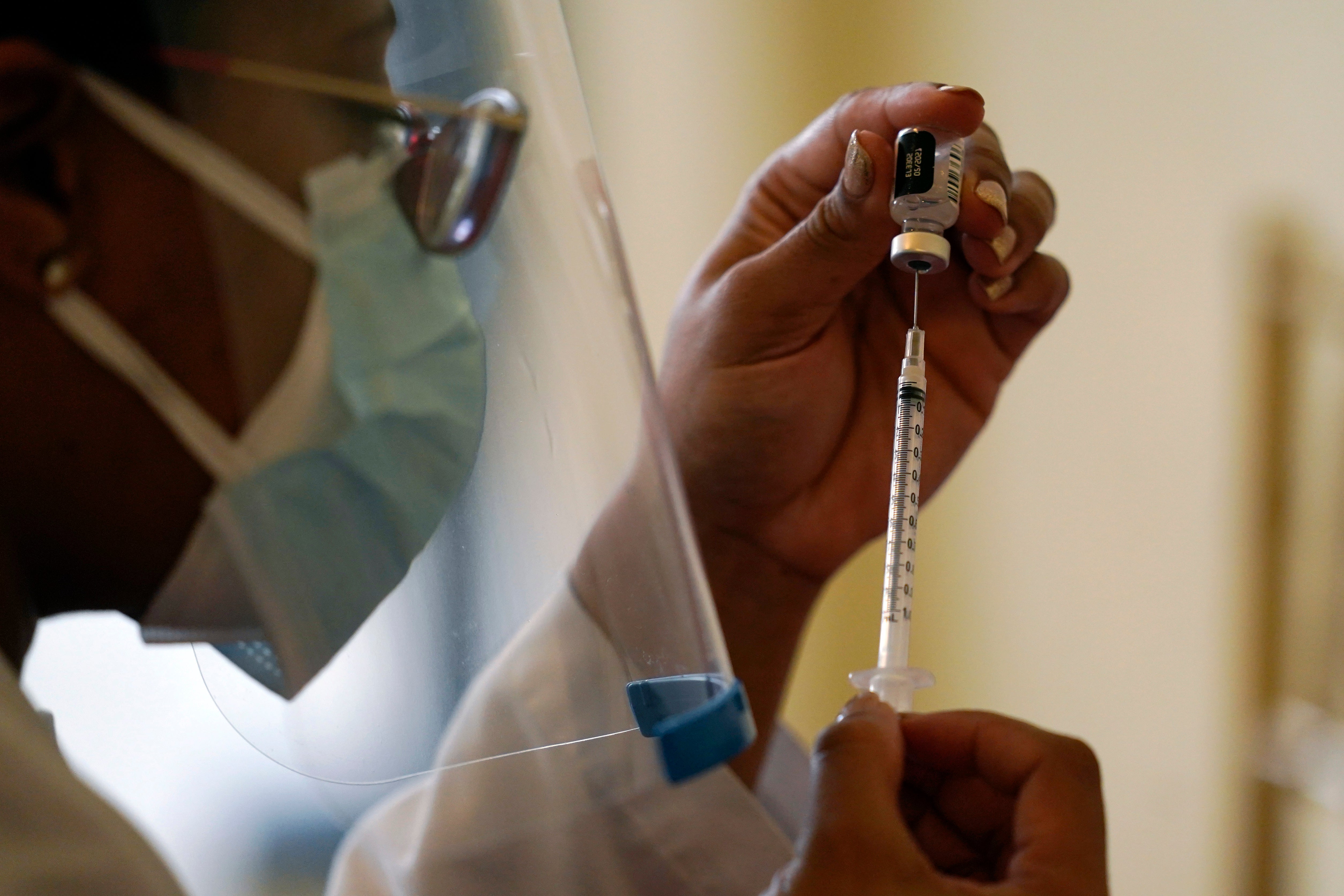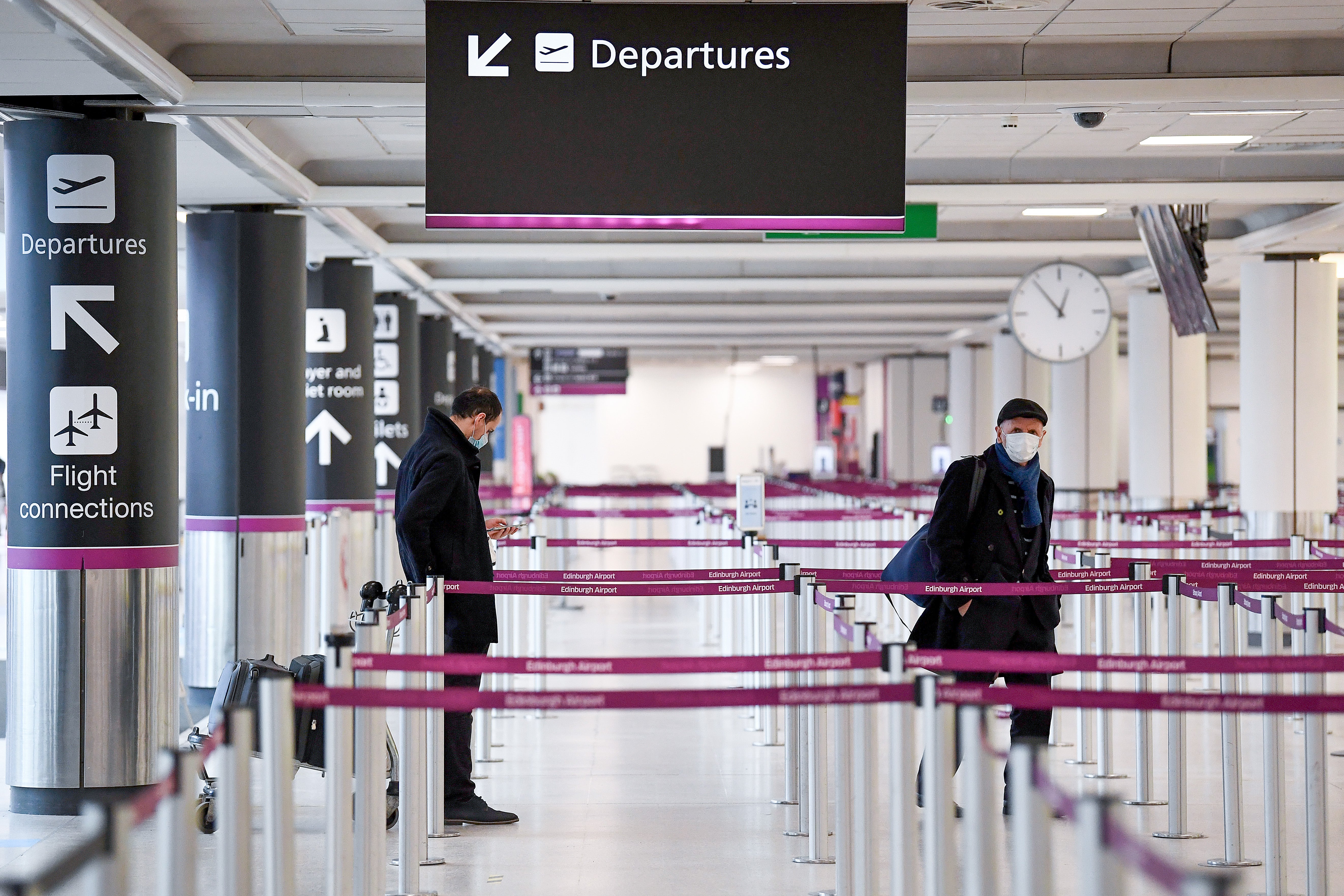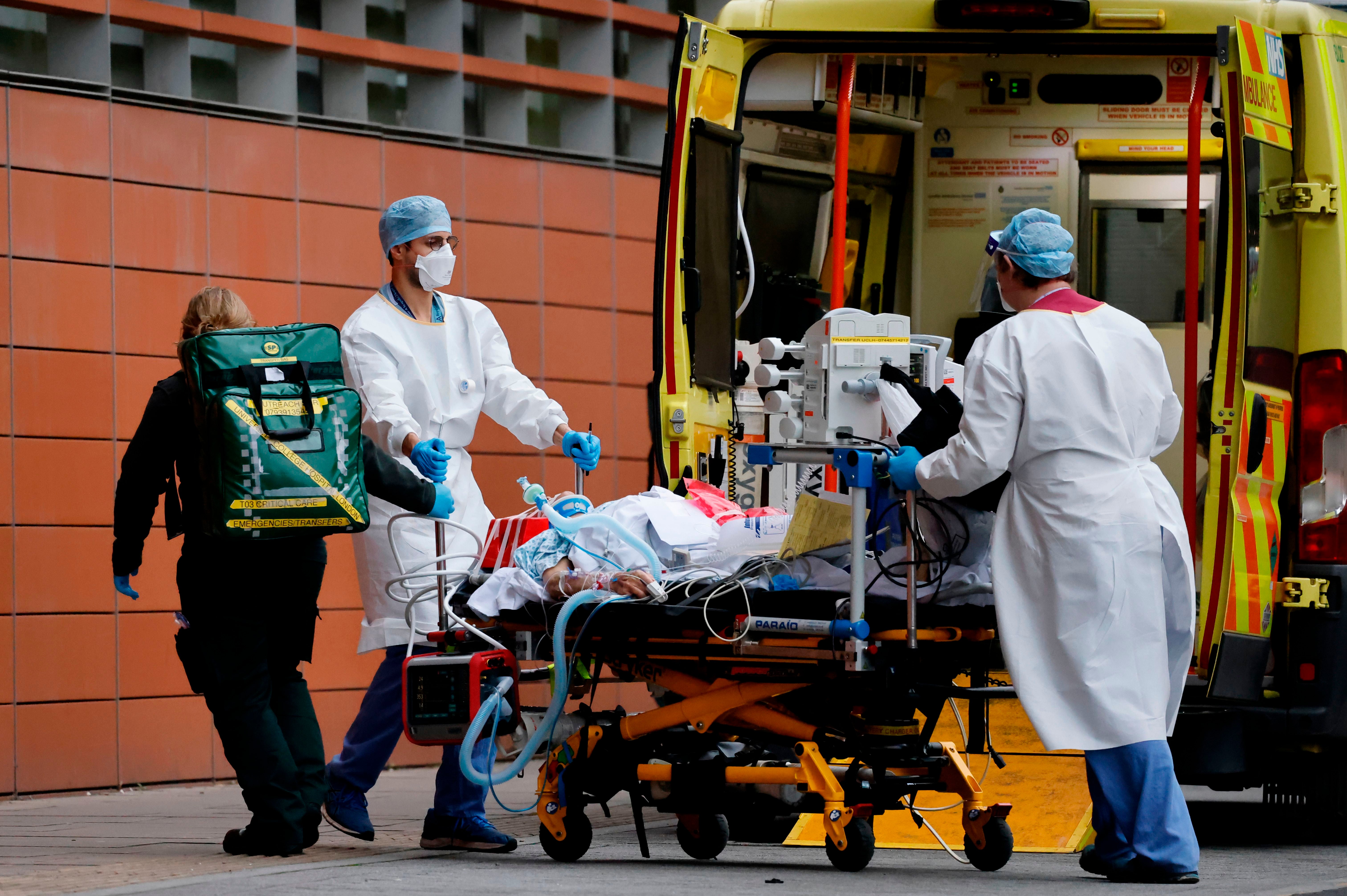Covid news - live: Biden and Boris Johnson discuss ‘green and sustainable’ coronavirus recovery in first call
All the day’s events as they happened
Boris Johnson and Joe Biden discussed the future of their response to the Covid-19 pandemic as the world leaders grapple with high levels of infection of death in their first call since the Democrat was named US president.
Sharing news of the call on Twitter Boris Johnson said they had discussed the forging of a green and sustainable recovery from Covid-19 - the death toll for which now stands at 97,329 according to the department of health.
It comes as a leading scientist defends the government’s decision to describe the new coronavirus variant as more deadly after others claimed the evidence is still unclear
Professor Peter Horby, who chairs the government’s New and Emerging Respiratory Virus Threats Advisory Group (Nervtag), defended Boris Johnson’s decision to reveal the information on Friday, but cautioned that the news needed to be “put in perspective” and that the risk of the strain being more deadly was still “very, very small” to most people.
But others cast doubt on the PM’s claim, saying it is still an “open question”. Some said they were “quite surprised” that the government chose to make the announcement, as the evidence was “based on a relatively small amount of data”.
Public Health England medical director Dr Yvonne Doyle said it is still not “absolutely clear” that the new variant is more deadly, adding that there are “several investigations going on at the moment” and more work needed to be done to determine if that was actually the case.
And as the number of people to have received at least one dose of a vaccine reached more than 5.8 million, the nation’s deputy chief medical officer Professor Jonathan Van-Tam urged those with the partial immunity to continue to socially distance.
Writing in The Sunday Telegraph, he said: “Regardless of whether someone has had their vaccination or not, it is vital that everyone follows the national restrictions and public health advice, as protection takes up to three weeks to kick in and we don’t yet know the impact of vaccines on transmission.”
Good morning, and welcome to The Independent’s liveblog following the latest developments in the coronavirus pandemic.
Delaying second dose of vaccine increases risk of new resistant strain - Sage
Government scientists have warned that delaying doses of coronavirus vaccines will increase the chances of a vaccine-resistant strain of Covid-19 emerging.
New reports released by the Scientific Advisory Group for Emergencies (Sage) warn that resistant new variants were a “realistic possibility” driven by the virus reacting to increasing levels of natural immunity among the population.
Read the detailed report by our Health Correspondent Shaun Lintern:

Delaying second vaccine dose increases risk of new resistant strain, Sage reveals
PHE boss defends decision to delay the second vaccine dose
Dr Yvonne Doyle, medical director of Public Health England, defended the decision to delay the second dose of the coronavirus vaccine to 12 weeks.
She said the decision had been taken on “public health and scientific advice”.
Speaking to BBC Radio 4’s Today programme, Dr Doyle said: “The more people that are protected against this virus, the less opportunity it has to get the upper hand. Protecting more people is the right things to do.
“People will get their second dose. As supplies become available more people will be vaccinated.
“It is a reasonable scientific balance on the basis of both supply and also protecting the most people.”
British Medical Association calls for gap between vaccine doses to be halved
The British Medical Association (BMA) has written to England’s chief medical officer, Professor Chris Whitty, to slash the gap between the first and second doses of the Pfzer/BioNTech Covid-19 vaccine.
The gap between doses was extended from three to 12 weeks in order to get more people inoculated with the first jab of the vaccine, but the BMA said the current plan was “difficult to justify”.
In a letter seen by the BBC, senior doctors are calling on the gap to be reduced to six weeks. The BMA agreed that the vaccine should be rolled out “as quickly as possible”, but called for an urgent review of the gap between doses.
“The absence of any international support for the UK’s approach is a cause of deep concern and risks undermining public and the profession’s trust in the vaccination programme,” said the letter.
Ministers to discuss hotel quarantine for arrivals into the UK
On Monday, ministers are set to discuss whether to introduce tighter restrictions at the UK borders to avoid the spread of new coronavirus variants.
This could include the possibility of hotel quarantines for travellers, the BBC reports.
Currently, all international arrivals, including UK nationals, must present a negative coronavirus test taken in the 72 hours before departing for the UK, as well their passenger locator form. If they fail to do so, they face a fine of up to £500.
All passengers must also quarantine for 10 days upon arrival, but this can be shortened if they test negative for the virus after five days.
It comes after the prime minister hinted during yesterday’s Downing Street press conference that the government may have to introduce more border restrictions.
Read what Boris Johnson had to say about possible new restrictions in Jon Stone’s report below:

Boris Johnson hints at tighter border rules, saying ‘we may need to go further’ to limit Covid spread
Additional measures at borders could slow spread of international Covid variants, says scientist
Professor Peter Horby, chairman of government advice group Nervtag, has warned that it is “almost impossible” to have complete control over the spread of other coronavirus variants, but certain measures would slow them down.
Speaking to BBC Breakfast, he said: "The variants are a concern... I think complete control of variants moving around the world is going to be almost impossible but we know that certain measures can slow the movement of these viruses around the world.
"Certainly measures like stricter quarantines and putting people in hotels for long periods will have an impact and it's up to the Government to decide whether they think the imposition of those is worth the benefits they're likely to see.”
Prof Horby agreed that the UK would be safer "from a scientific point of view" if more measures were put in place.
He also defended the government’s decision to announce that the new variant that emerged in the UK may be deadlier than the original version, saying: "I think a very important principle is transparency. Scientists are looking at the possibility that there is increased severity... and after a week of looking at the data we came to the conclusion that it was a realistic possibility.
"We need to be transparent about that. If we were not telling people about this we would be accused of covering it up.
"What we need to do is get that message out and put it in context so instead of headlines saying 30 per cent increase in risk we need to explain this in terms of the absolute risk we may be seeing and also explain the uncertainties."
What has the government said about the new coronavirus variant?
Boris Johnson warned the nation that the new variant of Covid-19 spreading rapidly in the UK could be up to 30 per cent deadlier than the original virus.
My colleague Samuel Lovett reports on what the government has said about the new variant so far:

Coronavirus: New variant up to 30% more deadly, Johnson warns as tighter border rules loom
Wealth of world’s 10 richest men could pay for Covid vaccines for everyone - Oxfam
The increase in wealth of the world’s top 10 billionaires during the coronavirus pandemic is more than enough to both pay for a Covid-19 vaccine for everyone on the planet and to reverse the rise in poverty caused by the crisis, claims Oxfam.
The charity is calling for higher taxes on the very richest, reports my colleague Jane Dalton.
Read more on the story here:

World’s 10 richest men could fund Covid vaccines for everyone from their rise in wealth last year, says Oxfam
Scientist calls for tougher lockdown
Professor Susan Michie, a scientist advising the government on coronavirus and director of the Centre for Behaviour Chance at UCL, has called for tighter lockdown restrictions.
Responding to the government’s new advert, which asks people to “look in the eyes” of frontline medical workers and Covid-19 patients, she told Times Radio: “The advert, the Government messages and Priti Patel talking about fines is all on the basis that the main problem is that people aren't adhering to the rules that exist.
"But actually all the data show that the overwhelming number of people are sticking to the rules with one exception which is self-isolation.
"In fact I would say that it's not so much people not sticking to the rules, but it's the rules themselves that are the problem,” she added.
Prof Richie said current rules were not enough to tackle the more infectious variant of Covid-19, and said there were twice as many people going to work and using public transport compared to the first lockdown last March.
She also said more children were going to school after the government “widened the definition of who’s a key worker”.
Prof Michie said: "Do what we did in March but consider are there other things we could tighten? The better the lockdown is now the shorter it will be.
"I think we should throw everything we can at really driving transmission down to a low level.
"Make a really effective test, trace and isolate system so when inevitable outbreaks occur there's a system there that can manage it and prevent it getting out of control again."
Join our commenting forum
Join thought-provoking conversations, follow other Independent readers and see their replies
Comments
Bookmark popover
Removed from bookmarks